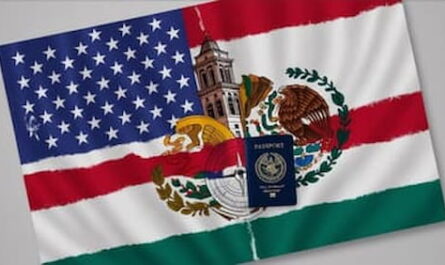Every year, millions of people focus on Canada, but the most important step you will need to tackle is the Canada nonimmigrant visa application. These people hope to experience Canada’s breathtaking landscapes, thriving cities, and welcoming culture. So, you’re definitely not alone if you’ve ever found yourself daydreaming about the crisp air of Banff. While many feel the multicultural buzz of Toronto, others dream of catching up with friends and family in Vancouver. Whatever the case maybe, you’ll find out what you need and how to avoid common pitfalls. We’ll guide you through everything you should know, so your Canadian adventure can start on the right foot.
What is a Canada nonimmigrant visa and who needs one
A nonimmigrant visa for Canada is commonly known as a Temporary Resident Visa (TRV) or visitor visa. It is a document that lets you temporarily enter Canada. This could be for tourism, business, family visits, or short-term studies. Not everyone needs a visa, citizens from visa-exempt countries can enter with an Electronic Travel Authorization (eTA). But, if your country isn’t on that list, you’ll need to apply for a TRV before traveling.
More details can be found here on: What is difference between nonimmigrant and immigrant visa?
The Canadian government processed over 1.3 million work permit applications and more than 844,000 study permit applications in 2024 alone. This shows just how popular Canada is as a destination. Meanwhile, the number of visitor visa applications continues to rise, so it’s important to understand the process and requirements.
What are the main types of Canada nonimmigrant visas
When people talk about a Canada nonimmigrant visa, they usually mean one of the following:
- Visitor Visa (TRV): For tourism, visiting family or friends, or short business trips. Usually valid for up to six months.
- Study Permit: For those enrolling in a Canadian educational institution.
- Work Permit: For temporary employment in Canada.
This guide focuses on the visitor visa, but many of the steps and requirements are similar for other nonimmigrant categories.
What are the eligibility demands for a Canada nonimmigrant visa
Before you start filling out forms, you should confirm that you meet the eligibility criteria. The Canadian government wants to make sure you’re visiting for the right reasons and that you’ll return home after your stay. Here’s what you’ll need to show: Your passport should be valid for the duration of your stay. Ideally, it should stay valid for several months after the day you intend to travel. You should be in good health and you might need to have a medical examination. This is especially true if you plan to stay for more than six months or are coming from certain countries.
You must be free of immigration infractions and criminal records. You must give proof that you intend to leave Canada at the end of your stay. Show links to your homeland like a job, family, or property is important. You must show that you have enough cash on hand to sustain yourself while visiting. This can vary, but bank statements for the last six months are commonly required. Depending on your purpose, you might need an invitation letter, travel itinerary, proof of employment, or other supporting documents.
How do I apply for a Canada nonimmigrant visa
The application process is simple yet demands close attention to detail. Follow these steps to navigate it effectively. Firstly, you should decide whether to apply online or on paper. Most applicants use the online system, which is faster and easier to track. The Immigration, Refuges and Citizenship Canada (IRCC) website requires you to register, then, fill out the relevant forms. They will need you to upload digital copies of your your passport, photographs, proof of funds, and any supporting letters. If you’re applying through a visa application center (VAC), you need to book an appointment for biometrics. This includes fingerprints and a photo.
After submitting your application, you’ll pay the visa fee (CAD 100) and the biometrics fee (CAD 85)7. The IRCC portal lets you track the status of your application. Processing times vary, in 2025, many applications are processed within 15 to 20 days after biometrics submission. However, you should apply at least two to three months before your planned travel date to avoid any last minute issues.
What documents should I prepare for my application
Be sure to collect all necessary documents before beginning your application. Commonly requested items often include:
1. A valid passport.
2. Recent passport-sized photographs.
3. Proof of funds (bank statements for the last six months).
4. Travel itinerary and hotel bookings.
5. Proof of employment or business.
5. Invitation letter (if visiting family or friends).
6. Medical exam results (if required).
7. Proof of COVID-19 vaccination or negative test, if applicable.
8. Additional documents for minors, like custody or adoption papers and parental consent, if relevant.
9. Submitting a well-organized and finished application can help speed up the process and reduce the risk of rejection.
How much money is needed for a Canada nonimmigrant visa
One of the most common questions is about the minimum bank balance needed. While there’s no fixed amount, you should be capable of showing you can cover your travel expenses, accommodation, and daily costs during your stay. For a single applicant, having at least CAD 4,000–6,000 in your account is generally considered reasonable. However, this amount can vary depending on your travel plans and length of stay. It also depends on whether you have family members accompanying you. If you’re staying with family or friends, an invitation letter can help. It should state that they will cover your expenses yet you should still show some funds of your own.
What are the common reasons for visa rejection and how to avoid them
Visa rejections can be frustrating, most are due to a few preventable mistakes. If you can’t show strong reasons to return home, like a steady job, family, or property, your application may be denied. Missing paperwork or inconsistencies can lead to quick rejections, not demonstrating enough financial means can be a red flag. Submitting false documents is a serious offense and can lead to bans from future applications. To avoid these issues, you should double check all your documents, give honest and clear information. Include a well-written cover letter explaining your travel purpose and ties to your home country.
How can I show close links to my home country
Visa officers want to be sure you’ll return home after your visit. You can prove this by including:
- Employment verification letters or recent payslips.
- Proof of property ownership or rental agreements.
- Family details, like marriage or birth certificates.
- Enrollment letters from educational institutions, if you’re a student.
- Any other evidence that shows your life is rooted in your home country.
Meanwhile, you should avoid submitting unnecessary documents that don’t directly support your case, as this can complicate your application.
What happens after I send my Canada nonimmigrant visa application
After submission, you’ll get instructions for biometrics if you haven’t provided them before. You’ll then wait for a decision, which you can track online. Your passport will be stamped with the visa’s approval, specifying the terms and length of your stay. If your application is denied, you will receive a letter revealing the reasons. You can reapply, addressing the issues raised, or seek advice from a qualified immigration consultant if needed.
Can I extend my stay in Canada
If you’re already in Canada and want to stay longer, you can apply to extend your visitor status. Make sure you do this before your visa expires, you’ll also need to show valid reasons for the extension. You will have to give updated documents including proof of funds and a new itinerary. Extensions aren’t guaranteed, but you can improve your chances by applying early and providing strong supporting evidence.
Tips for a smooth Canada nonimmigrant visa application
You should start your application as early as possible, gather all your documents in advance, and double-check everything before submitting. If you’re unsure about any part of the process, consult the official IRCC website. Visa application centers also offer detailed guides and FAQs. If you have a unique situation, provide a detailed explanation. This might include traveling for medical treatment, attending a special event, or visiting family during a crisis, include supporting documents.
On the other hand, if you’re just going for tourism, a clear itinerary and proof of bookings are usually enough. Please feel free to leave a remark if you have any queries or would like to share your personal experience. Your insights could help someone else on their journey to Canada!
Note: This information is for general knowledge only. It is not financial or legal advice. It is important to conduct thorough independent research. We don’t offer immigration or legal services. Individuals should consult with qualified professionals for personalized guidance.



